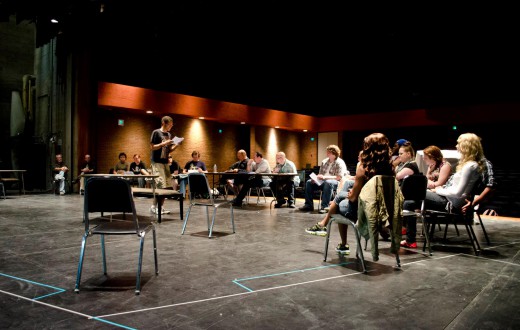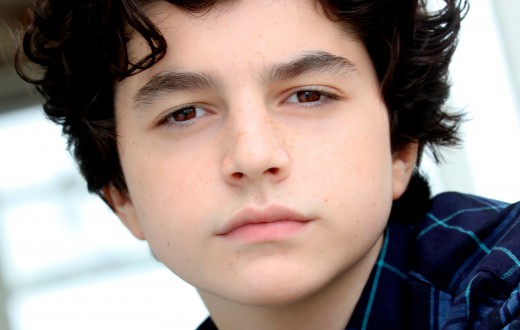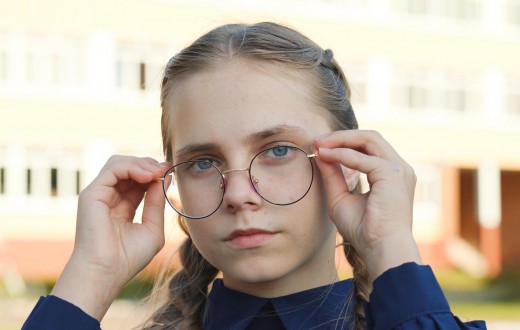Casting Directors can certainly tell if you’re serious about acting. Your audition is one of the most important steps in your career.
There are many layers of auditioning — there are in-person appointments and cattle calls, self-tapes and group auditions. Sometimes it’s just the CD in the room, other times the Director, producer, network executives and sometimes even the client (for a commercial, for example) also might be in attendance. You might get the job from one audition or have to go on 16 callbacks.
So how do you keep the attention of the people staring at you during your audition?
We asked seasoned Casting Director and acting teacher Donna Morong!
Donna recently wrapped up working on the film Better Start Running, starring Jane Seymour, Jeremy Irons, Maria Bello and Analeigh Tipton.
You’ll recognize Donna’s other work such as 10 Things I Hate About You, which starred Heath Ledger and Julia Stiles, Princess Diaries with Anne Hathaway, Lost Boys: The Thirst starring Corey Feldman, A Cinderella Story: Once Upon a Song with Lucy Hale and Gone Baby Gone starring Casey Affleck, Michelle Monaghan, Morgan Freeman and Ed Harris.
Donna teaches at the Aquila Morong Studio with heavy hitter CD Deb Aquila, who cast La La Land and The Shawshank Redemption and sex, lies and videotape, just to name a few.
Why did you become a Casting Director?
I got into casting after acting in NY off Broadway and training with Bill Esper in NY and at Rutgers. While I was there a producer introduced me to Pat McCorckle and Roger Sturtevant for a summer internship, after I expressed interest in casting. I was training to be a teacher in Meisner Technique and I kind of discovered casting on my own as a possible career. I wanted to be part of the creative team and found I was more suited to be on the other side of the stage. The rest is history! I worked on a wonderful musical Charlotte Sweet, that summer and fell in love with casting. Then I got my big casting break when Meg Simon and Fran Kumin hired me. They were the hot Casting Directors for Broadway at the time and I got to work on the original productions of Brighton Beach Memoirs, Biloxi Blues, The Real Thing, Hurly Burly, the female Odd Couple.
What mistakes did you make when you first started out as a CD?
I did some horrible things. I kept Buddy Ebsen, a very famous, but aging star from the Beverly Hillbillies, waiting in the waiting room for an hour. His agent chewed me out and I ended up sending him flowers. I don’t think either of them ever forgave me. I was taping Valerie Mahaffey once and she chastised me for sitting when she was standing and messing up her eye line. I never made those mistakes again.
Who chooses how many days a casting call is and how many actors will be seen? Is there a limit per day of how many hours you will see actors?
That totally depends on the project. I work on independent films where I have more latitude than TV. When I was a Disney exec I could sometimes spend months casting. There were time when I would only have a day if we were re-casting a part. The start date and money really dictate how long you look for a part. In terms of number of actors, Casting Directors work differently with different directors. Some Directors and some Casting Directors, as well, are highly selective and other Directors like to see lots of actors. Pre-reads and self tapes allow Casting Directors to see many more people.
Do you give guidance to the actors during their audition?
I will definitely direct actors if I think they have something that can work for the role but have made a choice that doesn’t serve the story. I also do give advice to actors just starting out if they are making an obvious mistake, or come in with excuses and not being fully prepared.
Different actors audition with the same lines. How do you keep from zoning out?
I try not to read the same role more than three times in a row. Pre-reads can be brutal especially with children or when you are auditioning actors who are very inexperienced. I am always thinking, “Why did this actor make this choice?”, which keeps me connected to the audition .
What are some faults an actor has that will put you to sleep in the audition room?
I don’t think I have ever fallen asleep! Actors who don’t make choices; actors who use the same tactic throughout the scene and don’t recognize when the turn of the scene; actors who struggle with English make it difficult to pay attention.
After hours and hours of the same thing, what can an actor do to make their audition stand out?
I don’t believe an actor should be in that mindset. An actor should try to put themselves in the imaginary circumstances and recognize the turns in the scene and really LISTEN actively. The more the actor invests in understanding the given circumstances and allowing behavior to flow from an understanding of the character, the more interesting and believable she/he will be. A person can be fascinating tying their shoe if their focus is completely on that activity.
Is there any such thing as a “bad” audition? Describe one of the bad auditions you’ve seen.
Ha! I have seen my share of bad auditions where the actor has no idea what she/he is auditioning for, hasn’t read the script, or done research. One actress, who is quite well known, came in an hour late, drinking a Big Gulp and had a million excuses, including her cat was sick, she broke up with her boyfriend, etc., why she was late. When she read, she was unprepared and made no real choices. We felt ripped off because we had waited for her.
How do you know which actors are right for the part?
That is a very complicated question that doesn’t have one answer. I work for the Director and try to share her/his vision. One Director may feel someone is right for the part and the producer may see it differently. I may see it differently and not agree who the “right” person is. Filmmaking and casting is a collaborative process.
Who ultimately chooses the actor?
Actors must remember that they are not being rejected if they don’t get a part, but someone else has been selected. Each project differs. In TV it will be network and studio execs with the input of producers if the producers are fairly new. It all depends who has the balance of power. In films it has traditionally been Directors and producers. Some Casting Directors have much more experience than young directors and will have a lot of sway over the selection. A studio, who is putting up the money, has great influence.
Anything else you’d like to say that will help the actor keep things fresh?
The most important thing for actors to bring to auditions is their love of acting. I can’t emphasize that enough. You are invited to the table and it is your opportunity to share your interpretation of the role. So many people want to act because it brings enormous joy and catharsis. Don’t try to please for the sake of pleasing but find your own integrity in what you do and you will never be boring.
Click Aquila Morong Studio for more information on how you can register!







